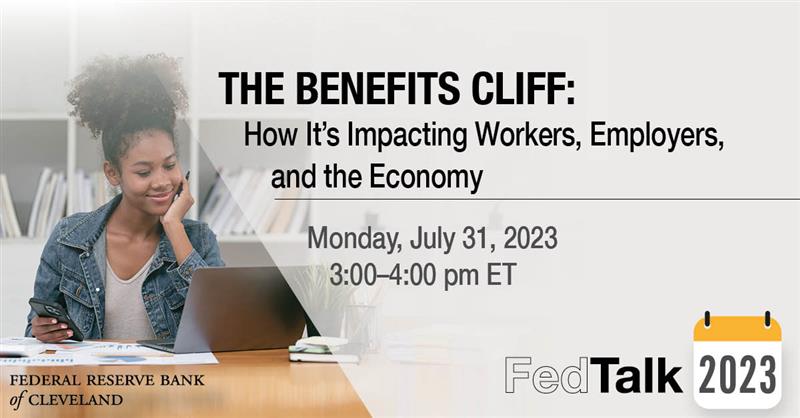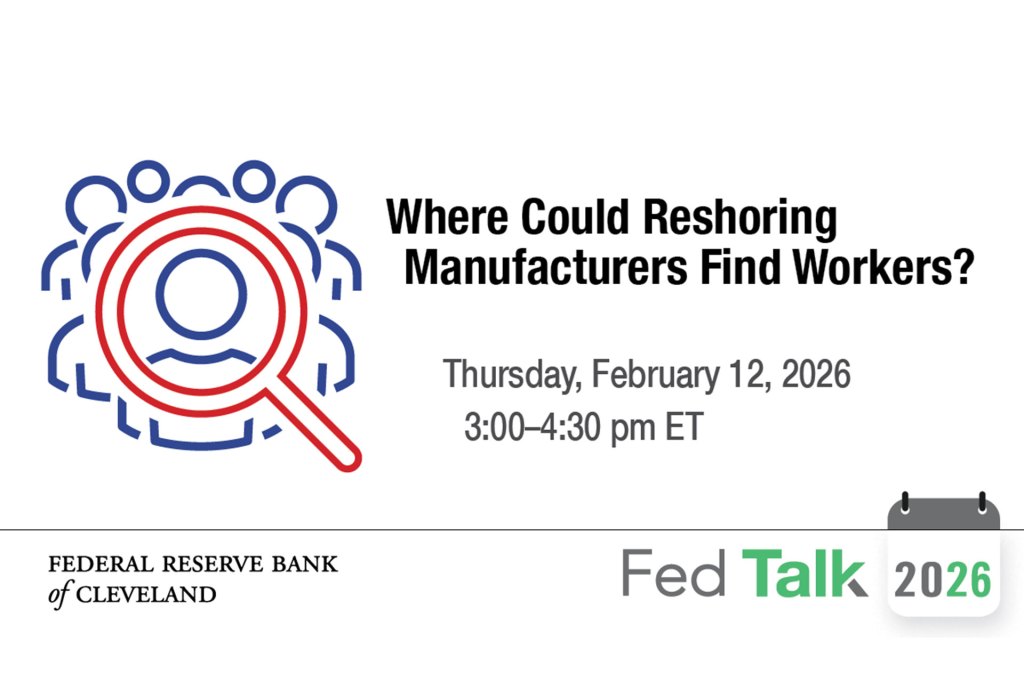
- This event has passed.
FedTalk: Benefits Cliff: How It’s Impacting Workers, Employers, and the Economy
July 31, 2023 @ 3:00 pm – 4:00 pm EDT

Many lower-wage workers are familiar with the benefits cliff. This cliff occurs when an increase in a worker’s earned income causes a disproportionately greater loss of critical public assistance, from housing to childcare and healthcare benefits. A cliff can be prompted by a modest raise or a worker taking a new job with higher pay, or by someone rejoining the workforce after some time away. Sometimes the cliffs can be anticipated; often they are difficult to discern until a worker gets notice that they’ve lost a key benefit. It can be a disincentive to workers taking a job or wanting to advance in their career.
In the virtual FedTalk session on July 31, you’ll learn how the benefits cliff impacts individuals and families, employers, policymaking, and the economy overall. You’ll also learn about how some community organizations are working with state agencies and policymakers to make progress on the benefits cliff issue. Join us and bring your questions for this insightful conversation.
Panelists

Scott Fast
Workforce and Technology Strategist
Innovate+Educate

Anne Kandilis
Director
Springfield WORKS

Marielle Lovecchio
Director
Tennessee Alliance for Economic Mobility
Moderators

Brittany Birken
Chief Economic Development Director and Principal Adviser
Federal Reserve Bank of Atlanta

Gabriella Chiarenza
Communications Advisor
Fed Communities
Visit the event site for speaker bios >






